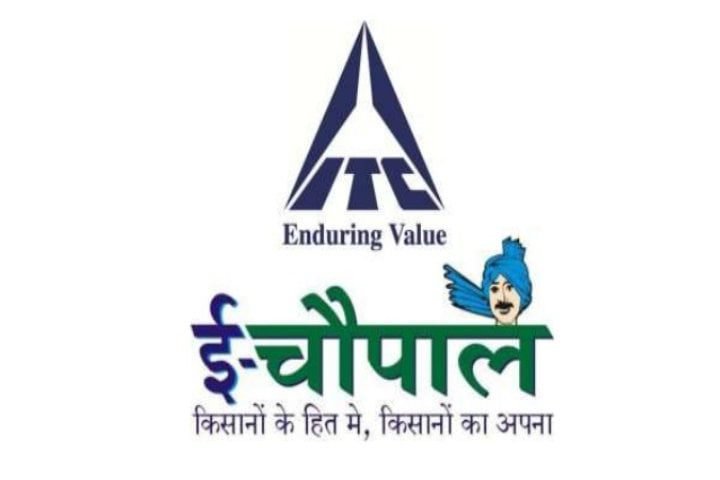PR Case Studies India ITC Chaupals
ITC Limited, or ITC, is an Indian conglomerate headquartered in Kolkata, West Bengal. Its diversified business includes five segments:
In This Article
- Fast-moving consumer goods
- Hotels
- Paperboards & packaging
- Agribusiness
- Information technology
Established in 1910 as the Imperial Tobacco Company of India Limited, the company was renamed the Indian Tobacco Company Limited in 1970 and ITC Ltd. in 2001.
ITC is the market leader in India’s cigarette market. The company’s cigarette business reported volume growth of 11–12% during the third quarter of FY 2023–24; segment revenues grew to ₹7,355.83 crore, up 14.1% from ₹6,443.37 crore a year ago. With a significant stake in India’s tobacco market, accounting for around 80% of cigarette sales, ITC recognized the socio-economic challenges prevalent in rural India, particularly among farmers. However, their foray into rural empowerment through ITC Chaupal captured national attention and admiration.
Context
In a strategic move to enhance its corporate social responsibility (CSR) and foster goodwill among rural communities, ITC launched e-Chaupals. These digital hubs equipped villagers in rural India with computers and internet access, serving as gateways to valuable agricultural knowledge and market insights.
This case study explores the significant influence of ITC Chaupal on Indian farmers and analyzes the strategic public relations (PR) efforts that contributed to its achievements.
Impact on Farmers
The impact of ITC Chaupal on farmers cannot be overstated.
ITC Chaupals enables farmers to negotiate the sale of their produce with ITC Ltd. directly. This facilitated fair pricing and eliminated intermediaries, augmenting farmers’ income.
By bridging the digital divide and providing access to real-time market information, mandi prices, and good farming practices, farmers were empowered to make informed crop cultivation inputs like seeds, fertilizers, and sales decisions.
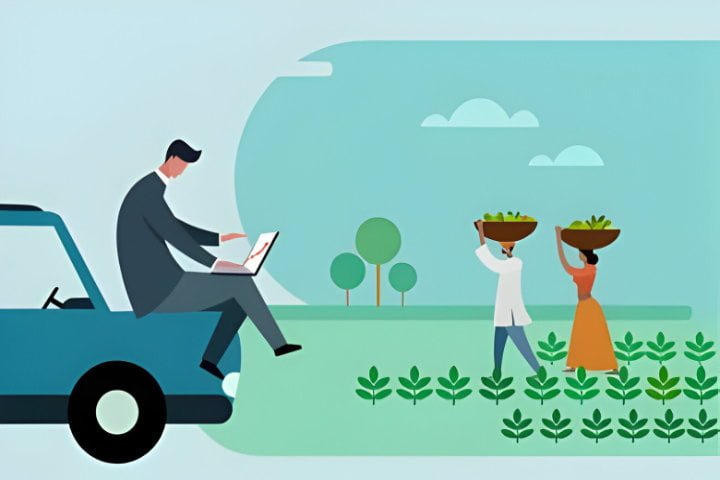
This helps farmers improve the quality of their products and obtain better prices.
There are nearly 6,500 e-Choupals in operation in 40,000 villages in 10 states, empowering around 4 million farmers.
Launched in June 2000, ‘e-Choupal’ is claimed to be the largest initiative among all Internet-based interventions in rural India. ‘e-Choupal’ services are claimed to reach out to over 4 million farmers growing a range of crops—soybean, coffee, wheat, rice, pulses, and shrimp—in over 35000 villages through 6100 kiosks across 10 states (Madhya Pradesh, Haryana, Uttarakhand, Uttar Pradesh, Rajasthan, Karnataka, Kerala, Maharashtra, Andhra Pradesh, and Tamil Nadu).
ITC e-Chaupal PR Strategies
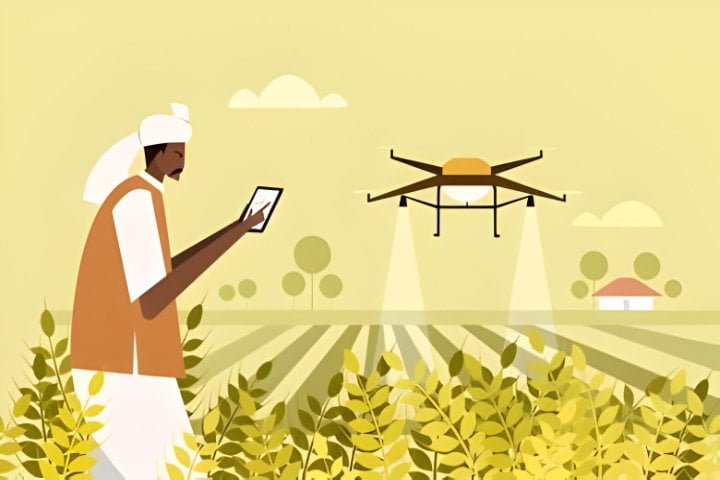
Central to the success of ITC Chaupal were its meticulously crafted PR strategies. Leveraging traditional and digital media platforms, ITC effectively communicated the objectives and impact of Chaupal, garnering widespread acclaim and support. Moreover, strategic partnerships with local communities and government agencies bolstered its credibility and outreach.
For instance, ITC has joined hands with the Andhra Pradesh government to develop a chilli value chain to improve the quality and sales of chilli output.
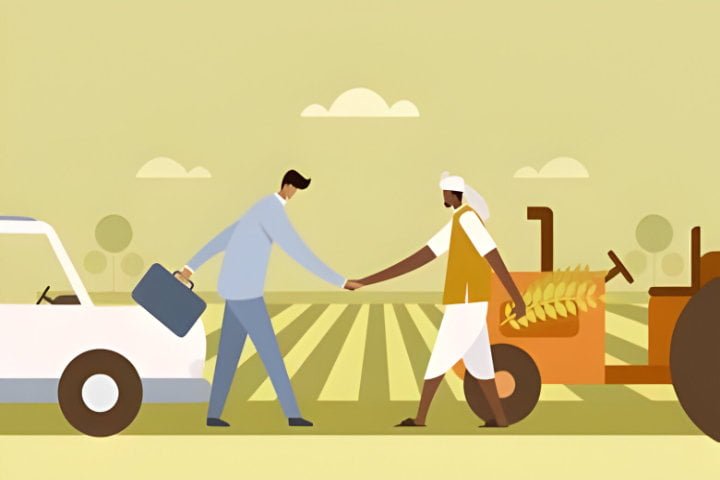
Post-covid, ITC helped the farmers create new milk producer groups and connected them with the company’s milk procurement channels. It was an extension of direct procurement from the farmers or app-based digital systems that monitor crops and deliver advisories.
The Central Government itself has made a technical intervention to support this idea. In April 2020, the agriculture ministry launched the Kisan Rath app, which is being seen as the Uberization of logistics.
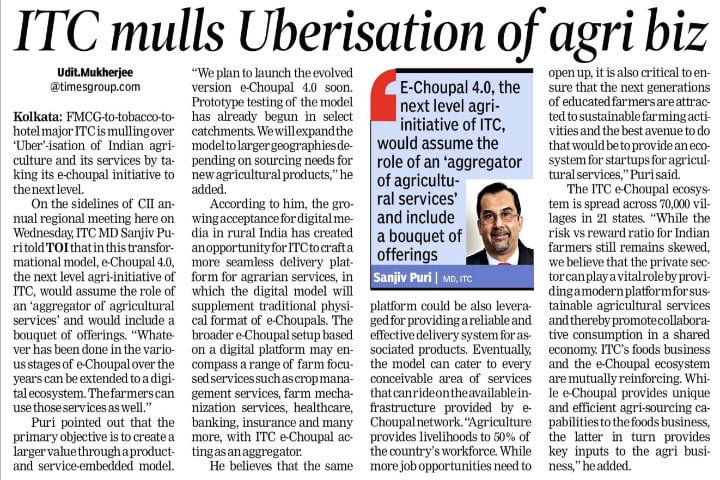
The app connects farmers and traders with more than 11.37 lakh trucks and 2.3 lakh transporters and helps them identify the right mode of transportation for their produce. Within a week of its launch, 80,474 farmers and 70,581 traders registered on the app to find the right transportation for moving farm produce, ranging from food grain to fruits and vegetables.
ITC’s e-Choupal has won numerous awards, most notably the United Nations Industrial Development Organization (UNIDO) Award at the 2008 international conference on Sharing Innovative Agribusiness Solutions in Cairo for agribusiness initiatives through the e-Choupal.
Lessons Learned
The success story of ITC Chaupal offers valuable lessons for businesses and policymakers alike.
Firstly, it underscores the importance of aligning corporate initiatives with societal needs, fostering sustainable development.
Secondly, it highlights the power of technology to bridge socioeconomic disparities and empower marginalized communities.
Conclusion
Similar to the ITC footprint in rural India, the potential for further agribusiness transformation through private players’ involvement remains immense. By leveraging emerging technologies like artificial intelligence and blockchain, initiatives like ITC Chaupal can further streamline agricultural supply chains and enhance productivity.
Moreover, collaborations with academia and research institutions can drive innovation and knowledge dissemination in agribusiness.
The case study of ITC Chaupal exemplifies the transformative potential of corporate social responsibility and strategic PR initiatives. By championing rural empowerment and inclusive growth, ITC has enhanced its brand reputation and made a tangible difference in the lives of millions of farmers across India.

